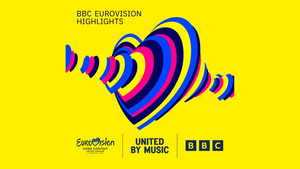The BBC has published a report detailing various stats from this year’s Eurovision Song Contest in Liverpool, including that it delivered a £55 million economic boost to the city.
The competition was held in the UK this year due to 2022 winner Ukraine being unable to host as a result of its ongoing war with Russia. The UK got hosting rights because it was in second place in 2022. Liverpool was chosen as the location for the event over other long-listed cities Newcastle, Manchester, Leeds, Glasgow, Sheffield and Birmingham.
“Liverpool delivered an exceptional event that surpassed all expectations and left an indelible mark on the Eurovision Song Contest”, says Chair of City Selection Phil Harrold in the report. “The city’s flawless execution, warm hospitality, and unwavering passion for music will be remembered for years to come. I can’t tell you how proud I am to have worked alongside such a brilliant, professional, passionate and dedicated team; Liverpool you are outstanding”.
As well as the final and semi-finals in the Liverpool Arena, an outdoor ‘Eurovision Village’ was set up, which saw 250,000 attend and collectively watch 95 hours of live performances. 557 visual artists were also commissioned to create work as part of the event. In total, 200 of the artists and performers involved were Ukrainian.
More widely, 473,000 people attended Eurovision events in the city, with 306,000 of those being additional visitors over what would normally be expected. This helped to deliver a £54.8 million economic boost to the city.
“We were also excited to ensure that Eurovision was about much more than the live shows themselves”, says Martin Green, Managing Director of Eurovision 2023. “From Liverpool’s extraordinary cultural, educational and community festivals to the wide range of additional content across the BBC, to EuroClub and, of course, the wonderful Eurovision Village, Eurovision 2023 has again proved that we can be united by music. In extraordinary circumstances, creativity and collaboration can thrive”.
“Eurovision is unique in terms of its ongoing appeal as an ‘appointment to view’ broadcast but also its phenomenal reach on social media”, he adds. “Consequently, its appeal to and engagement by young people is significant and continues to grow. There is no better way to demonstrate the values of a city and its people than to host Eurovision”.
You can read the full report here.

